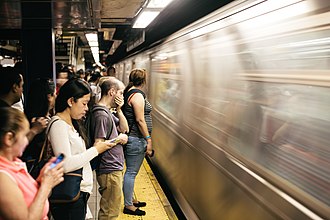
Rush hour refers to the periods of peak traffic congestion on roads and public transport systems, typically occurring twice daily on weekdays. These windows coincide with morning and evening commutes when the largest numbers of people travel to and from work or school. The phenomenon represents a consistent pattern in urban mobility worldwide.
This daily occurrence is notable for its significant impact on transportation efficiency, commute durations, and urban planning. The concentrated volume of vehicles and passengers during these hours frequently leads to delays, increased travel times, and heightened potential for transportation incidents. Municipalities and transportation authorities often develop specific strategies to manage rush hour demands.
Recent news coverage has highlighted rush hour's practical consequences through multiple incidents affecting major roadways. Various motorway crashes and vehicle-related incidents during peak travel times have been reported across different UK regions, including Bristol, Widnes, and Cambridge. These events have resulted in substantial traffic delays and queue formations during critical commuting periods.
The recurring nature of such incidents underscores rush hour's ongoing relevance to daily life and infrastructure management. These reports demonstrate how unexpected events during already congested periods can create widespread disruption for commuters and require coordinated response from emergency services and traffic management authorities.
Latest related news
- LIVE: M32 crash as rush hour traffic builds near Bristol - Bristol Live 2025-11-24 16:39 · Bristol Live
- Drivers left with delays after car fire on major UK motorway shuts lanes - The Sun 2025-11-24 16:36 · The Sun
- Delays and queues building after rush hour crash on M62 - St Helens Star 2025-11-24 16:27 · St Helens Star
- Live M11 updates as crash causes long delays in rush hour - Cambridge News 2025-11-24 16:16 · Cambridge News
- Delays and queues building after rush hour crash on M62 near Widnes - Runcorn and Widnes World 2025-11-24 15:55 · Runcorn and Widnes World
- Delays and queues building after rush hour crash on M62 in Warrington - Warrington Guardian 2025-11-24 15:54 · Warrington Guardian
- Trump Reportedly Pressuring Studio To Make A Sequel To Iconic Buddy Film - HuffPost 2025-11-24 15:09 · HuffPost
- Rush-hour alert: Multiple accidents cause heavy traffic on Dubai-Sharjah roads - Gulf News 2025-11-24 12:54 · Gulf News
- Exclusive: How Trump is trying to remake American culture — starting with his favorite buddy-cop franchise - https-//www.semafor.com 2025-11-24 09:58 · https-//www.semafor.com
- Eddie Murphy revela los 3 éxitos de taquilla masivos que desearía no haber rechazado nunca - Fox News 2025-11-23 07:19 · Fox News